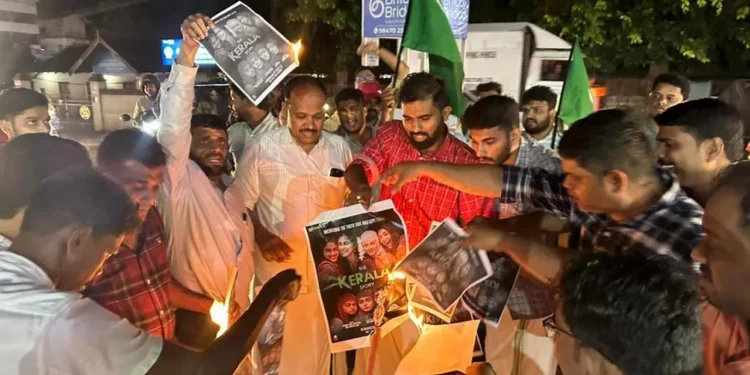There was a time when a debate raged over whether art should be created for art’s sake or whether art should be used as a propaganda tool. The proponents of the former believed art should be free from attempts to send out any overt messages and it should be enjoyed for its intrinsic beauty and worth. Trying to apply it to real life situations and draw practical lessons from it would be limiting the scope of art. But, those who differed from this view of artistic creations were of the opinion that art would be meaningless if it is divorced from reality and is not used to illuminate socio-economic-political conditions of life. The two differing schools of thought on art were accepted as two approaches to man’s artistic activities and everyone was free to subscribe to either of the two perceptions according to one’s tastes and inclinations. The debate ended there without causing any storm or heartburn. In reality, however, that debate will never end for humanity.
Times keep changing. Art – making films in India in particular – is now being used not simply to reflect real life, but to be a slave to political masters to suit their interests of capturing power by influencing the electorate’s mind with overt political messages. The BJP leadership realised about the grip the Bombay movie industry had on the average north Indian film goer that it just could not pass it up without tinkering with that icon of pop culture.
It happened late last year, when the film – The Kashmir Files – was used as a political propaganda to propagate the ruling dispensation’s narrative on Jammu & Kashmir. This resulted in drawing sharp criticism from the head of the jury of the prestigious International Film Festival of Goa, the Israeli director Nadav Lapid. He lashed out at the authorities for including the film in the festival as he found it “vulgar” and without artistic merit. All the jury members, except one from India, countenanced the opinion of Lapid, saying he had only articulated the consensus reached by the jury. The only Indian member in the jury, Sudipto Sen, struck a jarring note by claiming that Lapid was speaking in his personal capacity and his criticism did not reflect the views of the jury. The other members, who had by then left the country, soon rallied behind Lapid and called Sen’s bluff.
The same film director is once again at the centre of yet another controversy over a similar propaganda film of his making– The Kerala Story. The film too has received the seal of approval of the ruling dispensation. Ahead of the Karnataka Assembly Election, it has become a poll issue after Prime Minister Narendra Modi referred to the movie in his election speeches. BJP national president JP Nadda watched the movie in Karnataka and said the movie exposes a new kind of terrorism which involves no ammunition. “There is a new type of terrorism which is without ammunition. The Kerala Story exposes that poisonous terrorism,” Nadda said.
Information and Broadcasting Minister Anurag Thakur said those who are opposing The Kerala Story are supporters of PFI and ISIS. The Madhya Pradesh government of the BJP has exempted the film from entertainment tax.
The PM, other ministers of his Cabinet and many BJP MPs had urged the whole nation to watch The Kashmir Files and the party-controlled state governments exempted that film from tax.
As it happened in the case of The Kashmir Files, The Kerala Story is similarly being accused of distorting facts to give a wrong picture of reality in Kerala so as to demonise the minority community and the BJP’s opponents. The film puts incendiary dialogue in the mouth of a character – a woman ISIS activist radicalizing women – to abuse Hindoo gods and Jesus Christ and glorify Islam. The Kerala Story had initially also claimed that 33,000 women have been trained by the ISIS and thousands of Moslem women from Kerala were inducted into the ISIS. Later on that figure was reduced to a mere 3 in the YouTube promo of the movie. Kerala chief minister Pinarayi Vijayan called it a propaganda of the Sangh Parivar. Congress MP Shashi Tharoor said the claim that 33,000 women have been trained by the IS is false and exaggerated.
The teaser of the film used in its trailer with the claim of the fictitious number was dropped soon, lending credence to the political intent of the film. The question that arises at this stage is why the film director has had often to resort to lies and prevarication. He lied when he claimed Lapid’s opinion on The Kashmir Files was his personal one which gave the government some breathing space to train its guns on the jury head. Interestingly, the Union Govt itself had chosen Lapid as the head of the Goa jury. Now, Sudipto Sen’s movie gives unsubstantiated number of women in Kerala having been lured by the ISIS. The film itself deals with the cases of only three women from Kerala, while projecting Kerala to be a “powder keg” so far as ISIS activities are concerned.
The Supreme Court, in the meanwhile, has ordered the police forces of all states to start suo motu case against attempts to dish out hate speech to cause religious disaffection and vitiate communal harmony. It is to be pondered how films or any other so-called artistic work having potential to whip up communal sentiments should be dealt with in the coming days.






































